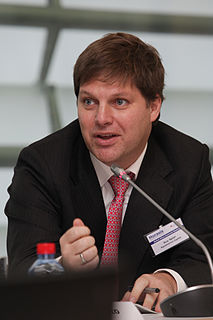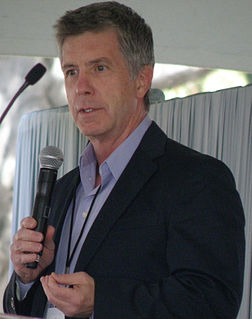A Quote by Seth Klarman
It is important to remember that value investing is not a perfect science. It is an, with an ongoing need for judgment, refinement, patience, and reflection. It requires endless curiosity, the relentless pursuit of additional information, the raising of questions, and the search for answers. It necessitates dealing with imperfect information - knowing you will never know everything and that that must not prevent you from acting. It requires a precarious balance between conviction, steadfastness in the face of adversity, and doubt - keeping in mind the possibility that you could be wrong.
Quote Topics
Acting
Additional
Adversity
Answers
Balance
Between
Conviction
Could
Curiosity
Dealing
Doubt
Endless
Everything
Face
Imperfect
Important
Information
Investing
Judgment
Keeping
Know
Knowing
Mind
Must
Need
Never
Ongoing
Patience
Perfect
Possibility
Precarious
Prevent
Pursuit
Questions
Raising
Refinement
Reflection
Relentless
Relentless Pursuit
Remember
Requires
Science
Search
Steadfastness
Value
Will
Wrong
Related Quotes
If the courts regarded tweets and other social media information as private, it would not prevent the law enforcement from getting information it really needs. But the government would have to get a search warrant, which requires it to show that it has probable cause connecting what is being searched to a crime.
Value investing is simple to understand but difficult to implement. Value investors are not supersophisticated analytical wizards who create and apply intricate computer models to find attractive opportunities or assess underlying value. The hard part is discipline, patience, and judgment. Investors need discipline to avoid the many unattractive pitches that are thrown, patience to wait for the right pitch, and judgment to know when it is time to swing.
The most important feature of an information economy, in which information is defined as surprise, is the overthrow, not the attainment, of equilibrium. The science that we have come to know as information theory establishes the supremacy of the entrepreneur because it appreciates the powerful connection between destruction and what Schumpeter described as "creative destruction," between chaos and creativity.
The pursuit of God is not a part-time, weekend exercise. If it is, chances are you will experience a part-time, weekend freedom. Abiding requires a kind of staying power. The pursuit is relentless. It hungers and thirsts. It pants as the deer after the mountain brook. It takes the kingdom by storm...The pursuit of God is a pursuit of passion. Indifference will not do. To abide in the Word is to hang on tenaciously. A weak grip will soon slip away. Discipleship requires staying power. We sign up for duration. We do not graduate until heaven.
Groups are only smart when there is a balance between the information that everyone in the group shares and the information that each of the members of the group holds privately. It's the combination of all those pieces of independent information, some of them right, some of the wrong, that keeps the group wise.
The media plays an essential role in our culture. It is the Fourth Estate; it's an undeniably essential instrument in the great American experiment - in keeping our democracy functional. People have very strong opinions about what that means and how information should be disseminated to a population that requires information.


































